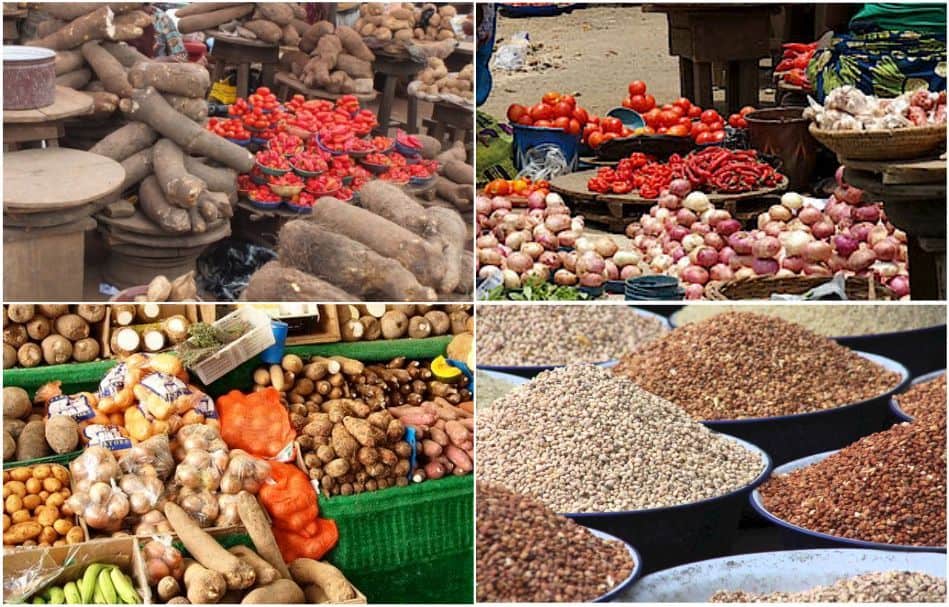
By Chioma Obinna
As nations continue to battle the impact of the COVID-19 pandemic, nutrition experts and other stakeholders in the agricultural sector have raised the alarm over the impact of the pandemic on the food supply chain in Nigeria even as they lament that it is having severe consequences on the nutrition of children, lactating and pregnant mothers and women of reproductive age.
This is coming on the heels of the latest report of the National Bureau of Statistics, NBS, on the impact of the COVID-19 which showed that food insecurity appears to be prevalent across the Federal Capital Territory, Kano, Lagos and Rivers states.
The report which contained results from the labour force survey of the second quarter of 2020, showed that in Rivers State and the FCT, 79 per cent of and 72 per cent of households respectively reported having to skip meals since the start of the pandemic.
READ ALSO: Food Security: Taraba to deliver Wukari – Tsokundi road in six months
Speaking during the 4th Protein Challenge Webinar Series, with the theme: “COVID-19 and Nigeria’s Protein Deficiency Situation”, the experts expressed worry that the current development would worsen protein deficiency in Nigeria.
The experts noted that specifically, Nigeria’s protein deficiency situation revealed that the pandemic is disrupting the agricultural sector coupled with the negative effect on nutrition.
They posited that the situation was grim with supply chains for agricultural activities occasioned by the lockdown, which has skyrocketed food prices across states.
A Clinician and Public health Physician, Dr Adepeju Adeniran, said the COVID-19 pandemic severely threatened food supply chains as the movement of farmers, food transporters, and sellers were restricted.
Recounting how it affects the supply chain, she said month-long disruptions have created effects that cannot easily be reversed.
Linking COVID-19 to protein deficiency, Adeniran explained that both animal and plant sources of protein are important dietary components of food and that while animal proteins take a long time to produce, husbandry and agricultural practices have improved to reduce the rate of production but only to an extent.
“Humans consume mostly the adult form of animal proteins so it must take time to produce. Even dairy and eggs can only be produced by adult animals, which must have time to grow and develop.
On her part, a nutritionist, at the Department of Home Economics, Adeniran Ogunsanya College of Education, Mrs Beatrice Oganah-Ikujenyo, who recalled that the first reaction was the lockdown nationwide, said it led to farm produce being trapped at storage and points of production leading to the deterioration of perishable foods and a disconnect in the supply chain. this led to food scarcity and an increase in the price of available foods.
READ ALSO: Expert says Nigeria must adopt modern technologies for food security
Noting that the pandemic has also affected food choices in terms of quantity, variety, and food preferences, she said: “Specific nutrient deficiency is likely to occur, especially protein deficiency among the vulnerable such as infants, young children, pregnant and lactating mothers.”
Oganah-Ikujenyo called for food complementation and supplementation to meet daily protein, vitamins, and mineral requirements to improve health and the vitality of individuals.
She advised families to go back to the days where every family has cultivated land for food crops like okra, leafy vegetables, plantain, etc, as it would reduce the pressure on the available food for sale across markets.
In her presentation, a Medical practitioner, Dr Monica Omo-Irefo noted that food security was the foundation for a healthy and well-nourished population.
Noting that nearly 47 million children under five years are malnourished, 14.3 million severely wasted, 144 million stunted, according to WHO, she said in the first quarter of 2020, 1 in 5 has severe malnutrition in the North East.
The post COVID-19 threatens food security in Lagos, FCT, 2 other States — Experts appeared first on Vanguard News.
https://ift.tt/3n2Lojh by Lawal Sherifat via Vanguard News Albert Einstein Fools of Fortune
Comments
Post a Comment